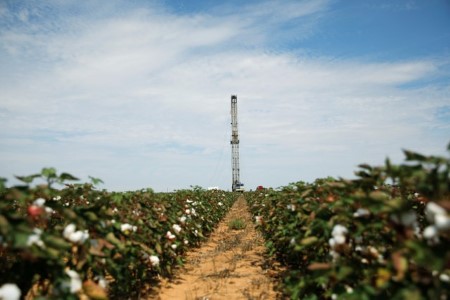




January Economic Update: Growth slows, prices rise
 DOWNLOAD
DOWNLOAD

Inflation Update: Up, up, and away?
 DOWNLOAD
DOWNLOAD

Quarterly Economic Growth Release: Growth takes on a slower pace
 DOWNLOAD
DOWNLOAD


Oil settles up after US crude stocks fall, Fed’s 2025 outlook curbs gains

HOUSTON –Oil prices settled higher on Wednesday after US crude inventories fell and the US Federal Reserve cut interest rates as expected, but gains were capped as the Fed signaled it would slow the pace of cuts.
Brent futures settled up 20 cents, or 0.27%, to USD 73.39 a barrel. US West Texas Intermediate crude settled up 50 cents, or 0.71%, to USD 70.58. Both benchmarks retreated from gains of more than USD 1 a barrel at session highs.
US crude stocks and distillate inventories fell while gasoline inventories rose in the week ending Dec. 13, the Energy Information Administration said on Wednesday.
Total product supplied, a proxy for demand, was 20.8 million barrels per day, up 662,000 bpd from the prior week.
“The market seems to have turned a corner from all the negativity we saw a couple weeks ago as there is more optimism about demand,” said Phil Flynn, a senior analyst for Price Futures Group.
The US Federal Reserve cut interest rates and signaled it will slow the pace at which borrowing costs fall further, given a relatively stable unemployment rate and little recent improvement in inflation.
Both Brent and US crude futures pared gains and turned negative in post-settlement trade after the Fed’s announcement, which was followed by the dollar index reaching a year-to-date high of 108.156.
A stronger greenback makes oil more expensive in other countries, which can reduce demand.
US central bankers project they will make just two quarter-percentage-point rate reductions by the end of 2025.
Oil investors had already baked in a 25-basis-point cut to be announced on Wednesday, StoneX analyst Alex Hodes said in a note, and had been more eagerly awaiting the Fed’s outlook for future cuts.
Lower rates decrease borrowing costs, which can boost economic growth and demand for oil.
(Reporting by Georgina McCartney in Houston, Arunima Kumar in Bengaluru, Colleen Howe in Beijing and Jeslyn Lerh in Singapore. Editing by Jonathan Oatis, Mark Potter, David Gregorio, Rod Nickel, Chizu Nomiyama and Deepa Babington)
This article originally appeared on reuters.com





 By Reuters
By Reuters